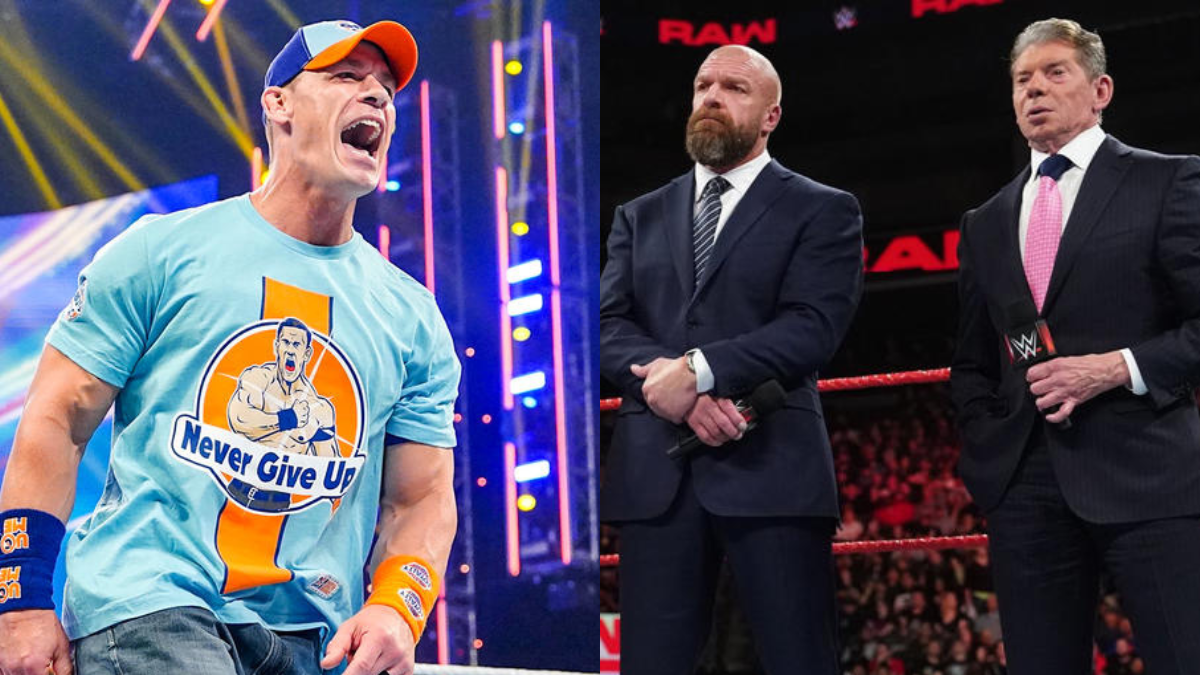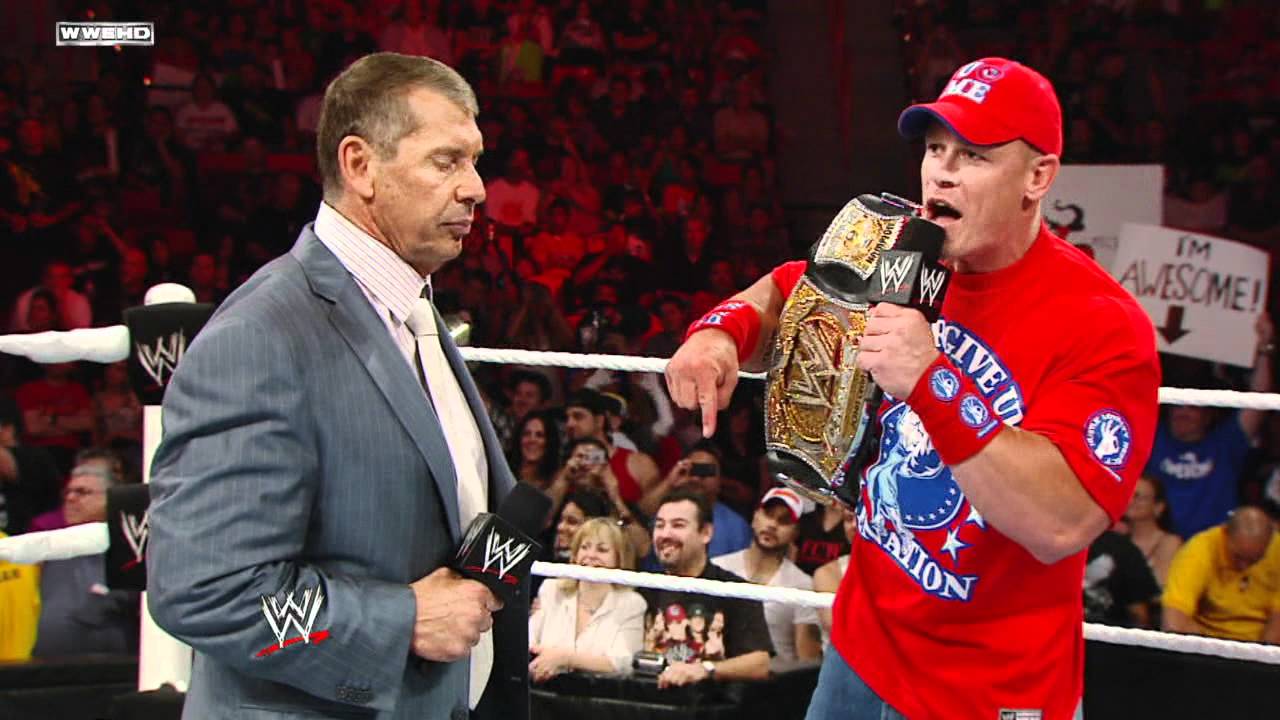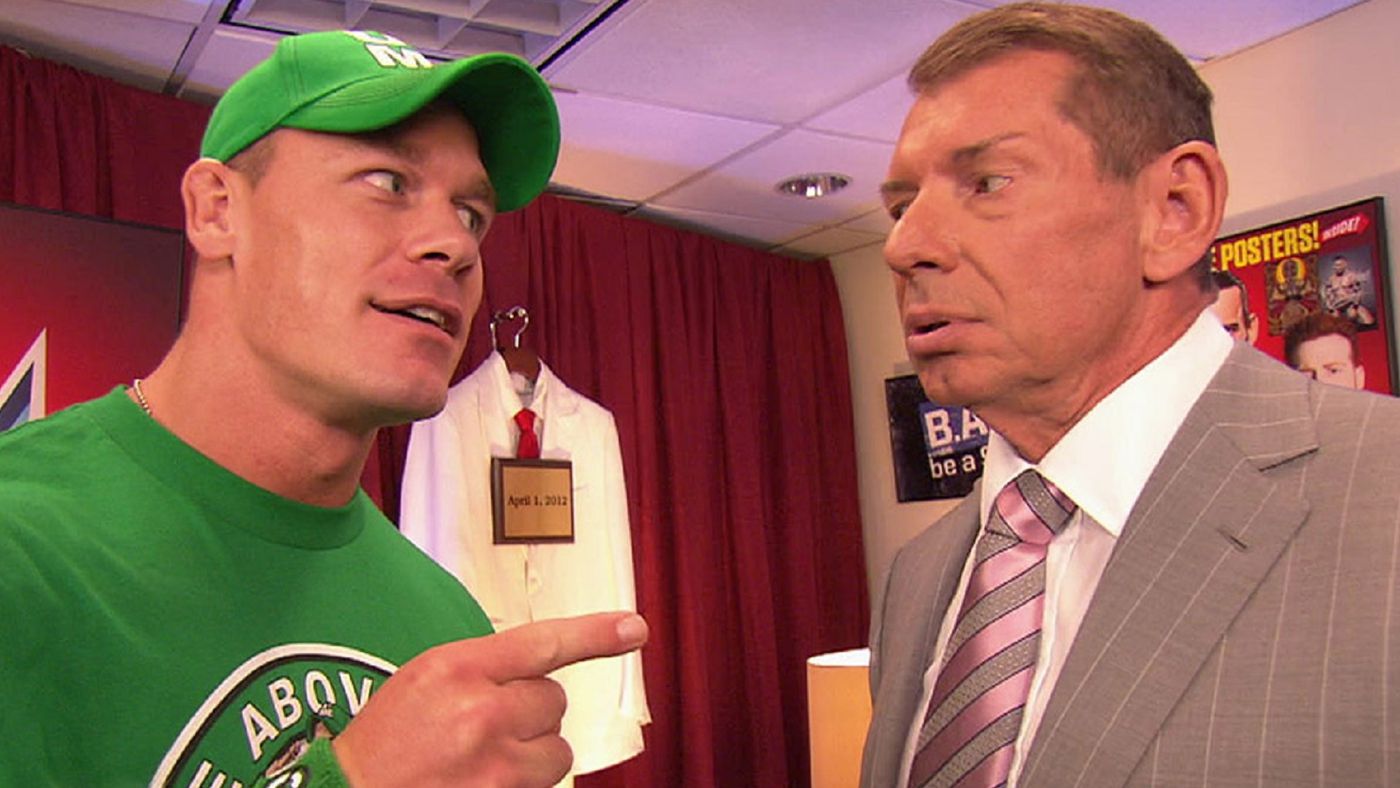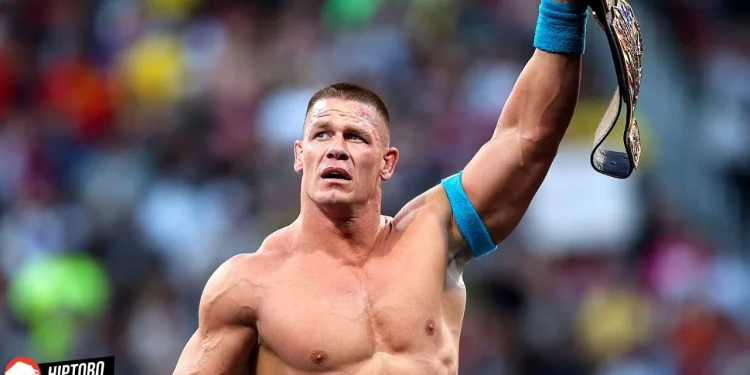Recently, John Cena, a name synonymous with WWE and often heralded as one of its greatest icons, found himself navigating the treacherous waters of public opinion following his comments on the allegations against Vince McMahon. John Cena’s remarks, made during an interview with Howard Stern, have ignited a firestorm of debate, underscoring the complex interplay between loyalty, accountability, and the public image of WWE.

John Cena Controversy: A Closer Look
John Cena’s response to the allegations against Vince McMahon has been met with a mixture of surprise and criticism. Speaking to Howard Stern, Cena attempted to articulate his perspective on the scandal enveloping the former WWE Chairman. His approach, characterized by a focus on love, friendship, and the journey of overcoming challenges, struck many as dismissive of the gravity of the accusations.
John Cena’s assertion, “I don’t think it’s complicated to talk about. It’s complicated to listen to,” alongside his emphasis on personal affection and the notion of taking things “one day at a time,” has sparked a conversation about the role of WWE stars in addressing sensitive issues.

Cena’s philosophy of love, friendship, and accountability, while noble in sentiment, has been criticized for seemingly undermining the seriousness of the allegations of sexual assault and trafficking. His repeated professions of love for McMahon, in the face of such serious accusations, have raised questions about the balance between personal loyalty and the ethical obligation to recognize and address misconduct.
Wrestling with Ethics: WWE’s Response to Scandal
The reaction to John Cena’s comments has highlighted a broader issue within WWE: the need for a unified and sensitive approach to scandals. With stars like Cena often seen as the face of the franchise, their responses to controversies can significantly impact WWE’s public image and internal morale.
The varying reactions from different figures within the organization have caused outrage, underscoring the importance of a coherent stance on issues of ethics and accountability.
John Cena claims Vince McMahon and Triple H wanted him gone from WWE early in his career pic.twitter.com/3vxGs87bB7
— WrestlingWorldCC (@WrestlingWCC) February 14, 2024
Female colleagues and co-workers within WWE are particularly attuned to how these matters are handled, given the implications for workplace culture and safety. The organization’s ability to navigate these turbulent waters will not only affect its reputation but also its capacity to foster an environment of respect and dignity for all involved.
The Path Forward: Accountability and Healing
As WWE grapples with the fallout from John Cena’s comments and the broader implications of the McMahon scandal, the road ahead calls for a careful balance of loyalty, accountability, and ethical leadership.
The controversy surrounding John Cena’s response serves as a reminder of the complexities inherent in addressing allegations of misconduct, especially within industries marked by intense loyalty and larger-than-life personalities.

For WWE, the challenge will be to cultivate a culture where sensitivity to serious allegations is paramount, and where the voices of all stakeholders, especially those who are most vulnerable, are heard and respected.
The organization’s ability to rise to this challenge will not only shape its future but also set a precedent for how controversies are managed in the high-octane world of professional wrestling.
In the end, John Cena’s comments open up a critical dialogue about the responsibilities of public figures in the face of controversy. As WWE moves forward, the lessons learned from this episode will undoubtedly influence how it navigates the complex interplay of loyalty, public image, and accountability in the years to come.

Source: John Cena









